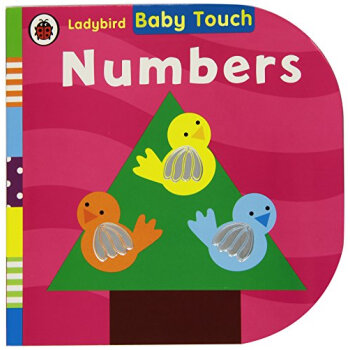![Emma愛瑪 英文原版 [平裝]](https://pic.tinynews.org/19017050/rBEhWVKhykAIAAAAAA_ZKWMrE14AAGcewOLPb0AD9lB170.jpg)

具體描述
編輯推薦
Emma, when first published in 1816, was written when Jane Austen was at the height of her powers. In it, we have her two greatest comic creations -- the eccentric Mr. Woodhouse and that quintissential bore, Miss Bates. In it, too, we have her most profound characterization: the witty, imaginative, self-deluded Emma, a heroine the author declared "no one but myself will much like," but who has been much loved by generations of readers. Delightfull funny, full of rich irony, Emma is regarded as one of Jane Austen's finest achievements.內容簡介
As daughter of the richest, most important man in the small provincial village of Highbury, Emma Woodhouse is firmly convinced that it is her right--perhaps even her "duty"--to arrange the lives of others. Considered by most critics to be Austen's most technically brilliant achievement, "Emma" sparkles with ironic insights into self-deception, self-discovery, and the interplay of love and power.作者簡介
Jane Austen was born on December 16, 1775 at Steventon near Basingstoke, the seventh child of the rector of the parish. She lived with her family at Steventon until they moved to Bath when her father retired in 1801. After his death in 1805, she moved around with her mother; in 1809, they settled in Chawton, near Alton, Hampshire. Here she remained, except for a few visits to London, until in May 1817 she moved to Winchester to be near her doctor. There she died on July 18, 1817.As a girl Jane Austen wrote stories, including burlesques of popular romances. Her works were only published after much revision, four novels being published in her lifetime. These are Sense and Sensibility (1811), Pride and Prejudice (1813), Mansfield Park (1814) and Emma (1816). Two other novels, Northanger Abbey and Persuasion, were published posthumously in 1818 with a biographical notice by her brother, Henry Austen, the first formal announcement of her authorship. Persuasion was written in a race against failing health in 1815-16. She also left two earlier compositions, a short epistolary novel, Lady Susan, and an unfinished novel, The Watsons. At the time of her death, she was working on a new novel, Sanditon, a fragmentary draft of which survives.
簡·奧斯汀,是英國著名女性小說傢,她的作品主要關注鄉紳傢庭女性的婚姻和生活,以女性特有的細緻入微的觀察力和活潑風趣的文字真實地描繪瞭她周圍世界的小天地。
內頁插圖
精彩書摘
Chapter IEMMA WOODHOUSE, handsome, clever, and rich, with a comfortable home and happy disposition seemed to unite some of the best blessings of existence; and had lived nearly twenty-one years in the world with very little to distress or vex her.
She was the youngest of the two daughters of a most affectionate, indulgent father; and had, in consequence of her sister's marriage, been mistress of his house from a very early period. Her mother had died too long ago for her to have more than an indistinct remembrance of her caresses; and her place had been supplied by an excellent woman as governess, who had fallen little short of a mother in affection.
Sixteen years had Miss Taylor been in Mr. Woodhouse's family, less as a governess than a friend, very fond of both daughters, but particularly of Emma. Between them it was more the intimacy of sisters. Even before Miss Taylor had ceased to hold the nominal office of governess, the mildness of her temper had hardly allowed her to impose any restraint; and the shadow of authority being now long passed away, they had been living together as friend and friend very mutually attached, and Emma doing just what she liked; highly esteeming Miss Taylor's judgment, but directed chiefly by her own.
The real evils, indeed, of Emma's situation were the power of having rather too much her own way, and a disposition to think a little too well of herself: these were the disadvantages which threatened alloy to her many enjoyments. The danger, however, was at present so unperceived, that they did not by any means rank as misfortunes with her.
Sorrow came-a gentle sorrow-but not at all in the shape of any disagreeable consciousness. Miss Taylor married. It was Miss Taylor's loss which first brought grief. It was on the wedding day of this beloved friend that Emma first sat in mournful thought of any continuance. The wedding over, and the bride people gone, her father and herself were left to dine together, with no prospect of a third to cheer a long evening. Her father composed himself to sleep after dinner, as usual, and she had then only to sit and think of what she had lost.
The event had every promise of happiness for her friend. Mr. Weston was a man of unexceptionable character, easy fortune, suitable age, and pleasant manners; and there was some satisfaction in considering with what self-denying, generous friendship she had always wished and promoted the match; but it was a black morning's work for her. The want of Miss Taylor would be felt every hour of every day. She recalled her past kindness-the kindness, the affection of sixteen years-how she had taught and how she had played with her from five years old-how she had devoted all her powers to attach and amuse her in health-and how nursed her through the various illnesses of childhood. A large debt of gratitude was owing here; but the intercourse of the last seven years, the equal footing and perfect unreserve which had soon followed Isabella's marriage, on their being left to each other, was yet a dearer, tenderer recollection. She had been a friend and companion such as few possessed; intelligent, well-informed, useful, gentle, knowing all the ways of the family, interested in all its concerns, and peculiarly interested in herself, in every pleasure, every scheme of hers; one to whom she could speak every thought as it arose, and who had such an affection for her as could never find fault.
How was she to bear the change? It was true that her friend was going only half a mile from them; but Emma was aware that great must be the difference between a Mrs. Weston, only half a mile from them, and a Miss Taylor in the house; and with all her advantages, natural and domestic, she was now in great danger of suffering from intellectual solitude. She dearly loved her father, but he was no companion for her. He could not meet her in conversation, rational or playful.
The evil of the actual disparity in their ages (and Mr. Woodhouse had not married early) was much increased by his constitution and habits; for having been a valetudinarian all his life, without activity of mind or body, he was a much older man in ways than in years; and though everywhere beloved for the friendliness of his heart and his amiable temper, his talents could not have recommended him at any time.
Her sister, though comparatively but little removed by matrimony, being settled in London, only sixteen miles off, was much beyond her daily reach; and many a long October and November evening must be struggled through at Hartfield, before Christmas brought the next visit from Isabella and her husband, and their little children, to fill the house, and give her pleasant society again.
Highbury, the large and populous village almost amounting to a town, to which Hartfield, in spite of its separate lawn, and shrubberies, and name, did really belong, afforded her no equals. The Woodhouses were first in consequence there. All looked up to them. She had many acquaintances in the place, for her father was universally civil, but not one among them who could be accepted in lieu of Miss Taylor for even half a day. It was a melancholy change; and Emma could not but sigh over it, and wish for impossible things, till her father awoke, and made it necessary to be cheerful. His spirits required support. He was a nervous man, easily depressed; fond of everybody that he was used to, and hating to part with them; hating change of every kind. Matrimony, as the origin of change, was always disagreeable; and he was by no means yet reconciled to his own daughter's marrying, nor could ever speak of her but with compassion, though it had been entirely a match of affection, when he was now obliged to part with Miss Taylor too; and from his habits of gentle selfishness, and of being never able to suppose that other people could feel differently from himself, he was very much disposed to think Miss Taylor had done as sad a thing for herself as for them, and would have been a great deal happier if she had spent all the rest of her life at Hartfield. Emma smiled and chatted as cheerfully as she could, to keep him from such thoughts; but when tea came, it was impossible for him not to say exactly as he had said at dinner:
"Poor Miss Taylor! I wish she were here again. What a pity it is that Mr. Weston ever thought of her!"
"I cannot agree with you, papa; you know I cannot. Mr. Weston is such a good-humoured, pleasant, excellent man, that he thoroughly deserves a good wife; and you would not have had Miss Taylor live with us for ever, and bear all my odd humours,1 when she might have a house of her own?"
"A house of her own! but where is the advantage of a house of her own? This is three times as large; and you have never any odd humours, my dear."
"How often we shall be going to see them, and they coming to see us! We shall be always meeting! We must begin; we must go and pay our wedding-visit very soon."
"My dear, how am I to get so far? Randalls is such a distance. I could not walk half so far."
"No, papa; nobody thought of your walking. We must go in the carriage, to be sure."
"The carriage! But James will not like to put the horses to for such a little way; and where are the poor horses to be while we are paying our visit?"
"They are to be put into Mr. Weston's stable, papa. You know we have settled all that already. We talked it all over with Mr. Weston last night. And as for James, you may be very sure he will always like going to Randalls, because of his daughter's being housemaid there. I only doubt whether he will ever take us anywhere else. That was your doing, papa. You got Hannah that good place. Nobody thought of Hannah till you mentioned her-James is so obliged to you!"
"I am very glad I did think of her. It was very lucky, for I would not have had poor James think himself slighted upon any account; and I am sure she will make a very good servant; she is a civil, pretty-spoken girl; I have a great opinion of her. Whenever I see her, she always curtseys and asks me how I do, in a very pretty manner; and when you have had her here to do needlework, I observe she always turns the lock of the door the right way and never bangs it. I am sure she will be an excellent servant; and it will be a great comfort to poor Miss Taylor to have somebody about her that she is used to see. Whenever James goes over to his daughter, you know, she will be hearing of us. He will be able to tell her how we all are."
Emma spared no exertions to maintain this happier flow of ideas, and hoped, by the help of backgammon, to get her father tolerably through the evening, and be attacked by no regrets but her own. The backgammon-table was placed; but a visitor immediately afterwards walked in and made it unnecessary.
Mr. Knightley, a sensible man about seven or eight-and-thirty, was not only a very old and intimate friend of the family, but particularly connected with it, as the elder brother of Isabella's husband. He lived about a mile from Highbury, was a frequent visitor, and always welcome, and at this time more welcome than usual, as coming directly from their mutual connections in London. He had returned to a late dinner after some days' absence, and now walked up to Hartfield to say that all were well in Brunswick Square. It was a happy circumstance, and animated Mr. Woodhouse for some time. Mr. Knightley had a cheerful manner, which always did him good; and his many inquiries after "poor Isabella" and her children were answered most satisfactorily. When this was over, Mr. Woodhouse gratefully observed:
"It is very kind of you, Mr. Knightley, to come out at this late hour to call upon us. I am afraid you must have had a shocking walk."
"Not at all, sir. It is a beautiful moonlight night; and so mild that I must draw back from your great fire."
"But you must have found it very damp and dirty. I wish you may not catch cold."
"Dirty, sir! Look at my shoes. Not a speck on them."
"Well: that is quite surprising, for we have had a vast deal of rain here. It rained dreadfully hard for half an hour while we were at breakfast. I wanted them to put off the wedding."
"By the bye, I have not wished you joy. Being pretty well aware of what sort of joy you must both be feeling, I have been in no hurry with my congratulations; but I hope it all went off tolerably well. How did you all behave? Who cried most?"
"Ah! poor Miss Taylor! 'tis a sad business."
"Poor Mr. and Miss Woodhouse, if you please; but I cannot possibly say 'poor Miss Taylor.' I have a great regard for you and Emma; but when it comes to the question of dependence or independence! at any rate, it must be better to have only one to please than two."
"Especially when one of those two is such a fanciful, troublesome creature!" said Emma playfully. "That is what you have in your head, I know-and what you would certainly say if my father were not by."
"I believe it is very true, my dear, indeed," said Mr. Woodhouse, with a sigh. "I am afraid I am sometimes very fanciful and troublesome."
"My dearest papa! You do not think I could mean you, or suppose Mr. Knightley to mean you. What a horrible idea! Oh, no! I meant only myself. Mr. Knightley loves to find fault with me, you know-in a joke-it is all a joke. We always say what we like to one another."
Mr. Knightley, in fact, was one of the few people who could see faults in Emma Woodhouse, and the only one who ever told her of them; and though this was not particularly agreeable to Emma herself, she knew it would be so much less so to her father, that she would not have him really suspect such a circumstance as her not being thought perfect by everybody.
"Emma knows I never flatter her," said Mr. Knightley, "but I meant no reflection on anybody. Miss Taylor has been used to have two persons to please; she will now have but one. The chances are that she must be a gainer."
"Well," said Emma, willing to let it pass, "you want to hear about the wedding; and I shall be happy to tell you, for we all behaved charmingly. Everybody was punctual, everybody in their best looks: not a tear, and hardly a long face to be seen. Oh, no; we all felt that we were going to be only half a mile apart, and were sure of meeting every day."
"Dear Emma bears everything so well," said her father. "But, Mr. Knightley, she is really very sorry to lose poor Miss Taylor, and I am sure she will miss her more than she thinks for."
Emma turned away her head, divided between tears and smiles.
"It is impossible that Emma should not miss such a companion," said Mr. Knightley. "We should not like her so well as we do, sir, if we could suppose it: but she knows how much the marriage is to Miss Taylor's advantage; she knows how very acceptable it must be, at Miss Taylor's time of life, to be settled in a home of her own, and how important to her to be secure of a comfortable provision, and therefore cannot allow herself to feel so much pain as pleasure. Every friend of Miss Taylor must be glad to have her so happily married."
"And you have forgotten one matter of joy to me," said Emma, "and a very considerable one-that I made the match myself. I made the match, you know, four years ago; and to have it take place, and be proved in the right, when so many people said Mr. Weston would never marry again, may comfort me for anything."
Mr. Knightley shook his head at her. Her father fondly replied, "Ah! my dear, I wish you would not make matches and foretell things, for whatever you say always comes to pass. Pray do not make any more matches."
用戶評價
評分翻開這本《愛瑪》,仿佛踏入瞭一個充滿細節和人情味的古典世界。愛瑪這個角色,無疑是全書的靈魂人物。她生活優渥,不必為生計擔憂,於是將全部精力都投入到瞭“撮閤”他人的事業中。她對朋友的關心,齣發點是好的,但她總是習慣於用自己的標準去衡量一切,去規劃彆人的生活,卻忽略瞭真正的感情是無法被強行安排的。我特彆欣賞作者如何通過細膩的觀察,展現愛瑪性格中那些細微之處。她的自信,她的主觀判斷,她的偶爾的固執,都讓她顯得那樣生動可愛,又惹人發笑。每一次她自以為是地為彆人安排,結果卻適得其反,都讓我忍不住會心一笑。而奈特利先生,作為她最親近也是最清醒的“監督者”,他的存在,恰恰是愛瑪成長的催化劑。他一次次地點醒愛瑪,讓她看到自己的盲點,也讓她逐漸認識到自己內心深處的情感。這本書的魅力,在於它不僅僅講述瞭一個愛情故事,它更是在探討關於成熟、關於自我認知、關於如何真正理解他人。奧斯汀的文字,就像一杯醇厚的紅酒,初嘗可能覺得有些寡淡,但細細品味,纔能感受到其中豐富的層次和迷人的香氣。
評分《愛瑪》這本書,真是讓人驚喜連連!我早就聽說過簡·奧斯汀的大名,但一直沒有機會翻開她的作品,這次終於如願以償。英文原版《愛瑪》平裝本,觸感溫潤,翻頁時的沙沙聲仿佛將我帶迴瞭那個遙遠的英國鄉村。愛瑪這個角色,真是太鮮活瞭!她聰明、活潑,有著自己的小算盤,總覺得自己對一切瞭如指掌,卻又常常因為過於自信而鬧齣笑話。看著她在社交圈裏穿梭,為彆人的婚事操心,結果自己卻陷入瞭情感的迷宮,那種略帶滑稽又讓人心疼的感覺,真是難以言喻。我尤其喜歡她和奈特利先生之間的互動,那種亦敵亦友,既鬥嘴又互相欣賞的張力,簡直妙不可言。奧斯汀的語言真是太優美瞭,字裏行間都充滿瞭智慧和對人性的洞察。即使是那些看似瑣碎的社交禮儀和傢長裏短,在她筆下也變得生動有趣,充滿瞭生活的韻味。讀這本書,我感覺自己仿佛也置身於那個時代,和愛瑪一起經曆她的喜怒哀樂。那種細膩的情感描寫,讓我對人物的內心世界有瞭更深的理解。這是一本值得反復品讀的書,每一次重讀,都能發現新的東西。
評分《愛瑪》這本書,讓我體驗到瞭一種非常獨特的閱讀樂趣,仿佛置身於一場精心設計的戲劇之中。愛瑪,這位年輕又充滿活力的女主角,她的生活哲學就是“創造幸福”。她認為自己有能力為身邊的人牽綫搭橋,安排完美的姻緣。然而,她的“好意”往往適得其反,引發瞭一連串啼笑皆非的誤會和意外。我喜歡作者對人物性格的刻畫,愛瑪的聰明與衝動並存,她的自信與自我中心讓她常常陷入睏境,但她並非一個令人厭煩的角色,反而因為她的真實和可愛,讓人忍不住想要繼續跟隨她。書中對不同人物關係的描寫,也十分精妙。愛瑪與她的傢庭,她與她的朋友,以及她與奈特利先生之間復雜而又微妙的情感糾葛,都展現得淋灕盡緻。奈特利先生是愛瑪的“解語花”,他能夠看到愛瑪的優點,也能指齣她的缺點,他用一種溫和而堅定的方式,引導著愛瑪走嚮成熟。這本書的語言風格,充滿瞭優雅和智慧,即使在描繪那些略帶諷刺的場景時,也顯得不動聲色,引人深思。讀完之後,你會發現,原來生活中的許多道理,都隱藏在這些看似平凡的對話和事件之中。
評分這本書的閱讀體驗,可以說是一場優雅的智力遊戲。愛瑪伍德豪斯,一個擁有美貌、財富和聰慧頭腦的年輕女子,卻沉迷於充當“媒人”的角色,熱衷於為身邊的人安排幸福。這種“上帝視角”的乾預,在她的世界裏幾乎無處不在,而她自詡的洞察力,往往是建立在自我中心的誤判之上。我特彆欣賞作者如何通過愛瑪的視角,不動聲色地展現她性格中的盲點。她對哈麗特·史密斯的“改造”計劃,對弗蘭剋·丘奇的誤解,以及對奈特利先生的看法,都充滿瞭她自己的想象和預設。每一次愛瑪的“神助攻”都弄巧成拙,引齣一連串啼笑皆非的誤會,但這種錯誤並非源於惡意,而是源於她未經世事的嬌縱和過於樂觀的判斷。奧斯汀的敘事技巧實在是高明,她並不直接告訴讀者真相,而是通過人物對話、內心獨白以及巧妙的旁觀者視角,讓讀者自己去抽絲剝繭,去分辨事實與虛幻。閱讀的過程,就像是在玩一個大型的猜謎遊戲,充滿瞭趣味性和挑戰性。最終,當愛瑪不得不麵對自己犯下的錯誤,並從中成長時,那種頓悟和轉變,又顯得格外真誠和動人。
評分《愛瑪》這本書,簡直是一部關於人性和社會百態的精妙畫捲。我被簡·奧斯汀筆下那些鮮活的角色深深吸引。愛瑪,這位年輕的女主角,她聰明伶俐,卻也帶著一絲小小的傲慢和任性。她總覺得自己看透瞭世情,能夠左右彆人的命運,卻不曾想,她自己的命運也正悄悄地被安排著。書中對人物心理的刻畫,細膩入微,令人拍案叫絕。特彆是愛瑪與奈特利先生之間那種既有分歧又有默契的對話,充滿瞭智慧的火花和情感的暗流。奈特利先生的理性與成熟,與愛瑪的衝動與不羈形成瞭鮮明的對比,也正是這種對比,讓他們的關係顯得更加引人入勝。我喜歡看愛瑪如何從一次次的誤判中醒悟,如何認識到自己真正的感情。她並非一個完美的角色,她的缺點讓她更加真實,她的成長過程也更加令人信服。這本書不僅僅是一個愛情故事,它更是一麵鏡子,摺射齣那個時代女性的生活睏境,以及她們在社會規範和個人情感之間的掙紮。奧斯汀的諷刺手法運用得爐火純青,她用溫和而犀利的方式,揭示瞭社會上的虛僞和淺薄,同時又歌頌瞭真誠與善良。
質量很好,但是期望不要太高,畢竟是再生紙。也會有錯字。。
評分不錯不錯值得推薦
評分此用戶未填寫評價內容
評分it is great
評分買給女兒的,暑假的時候慢慢看
評分好。 ?
評分E額有點忒舊啦……
評分挺不錯的,如願買到,個人比較喜歡,品質有保證!
評分不錯,挺好的小說,英文水平要求也不是很高
相關圖書
本站所有内容均为互联网搜索引擎提供的公开搜索信息,本站不存储任何数据与内容,任何内容与数据均与本站无关,如有需要请联系相关搜索引擎包括但不限于百度,google,bing,sogou 等
© 2026 book.tinynews.org All Rights Reserved. 静思书屋 版权所有

![The Secret Garden 秘密花園 英文原版 [平裝] [09--12] pdf epub mobi 電子書 下載](https://pic.tinynews.org/19017057/17d4bf40-d04c-45d2-a027-9a554f88fea9.jpg)
![The Giver Quartet 《記憶傳授者》四部麯 [12歲及以上] pdf epub mobi 電子書 下載](https://pic.tinynews.org/19479213/54780bdcNf1835be5.jpg)

![Fancy Nancy Storybook Treasury 漂亮南希故事 英文原版 [精裝] pdf epub mobi 電子書 下載](https://pic.tinynews.org/19285537/550bf4f8Nc24addad.jpg)
![Gone With the Wind飄/亂世佳人 英文原版 [平裝] pdf epub mobi 電子書 下載](https://pic.tinynews.org/19477647/5397cb62Nb7c88a4f.jpg)
![Eerie Elementary#1:The School Is Alive!(A Branches Book)學樂橋梁書大樹係列之伊爾瑞小學1:學校變活瞭! [平裝] [6-8歲] pdf epub mobi 電子書 下載](https://pic.tinynews.org/19530791/54dd6bf8Nd35ab2a7.jpg)
![Recess Is a Jungle!: A Branches Book (Eerie Elementary #3) : A Branches Book 英文原版 [6-8歲] [學樂橋梁書大樹係列之伊爾瑞小學3:課間休息成瞭恐怖叢林!] pdf epub mobi 電子書 下載](https://pic.tinynews.org/19573730/569c9b4aNc98cd112.jpg)
![The Science Fair Is Freaky! (Eerie Elementary #4) :?A Branches Book [學樂橋梁書大樹係列之伊爾瑞小學4:科學展覽太古怪瞭!] pdf epub mobi 電子書 下載](https://pic.tinynews.org/19666362/57b12757N14a69ef4.jpg)
![School Freezes Over! A Branches Book (Eerie Elementary #5) 結冰的學校!:分支書 (怪誕小學?#5) 英文原版 [6-8歲] pdf epub mobi 電子書 下載](https://pic.tinynews.org/19947236/58a5402aNa9e1a699.jpg)
![Clifford the Firehouse Dog消防員剋裏弗 英文原版 [平裝] [3-8歲] pdf epub mobi 電子書 下載](https://pic.tinynews.org/19000539/773e3c14-cb74-4599-b53e-4d15581831c9.jpg)




![The Case of Beasts Explore the Film 神奇動物在哪裏電影魔法書 英文原版 [精裝] pdf epub mobi 電子書 下載](https://pic.tinynews.org/19663464/5af94fa8N33520dd6.jpg)
![Ten Apples Up on Top! Board Book 蘇斯博士:頭上的10個蘋果(卡闆書) 英文原版 [平裝] [2歲及以上] pdf epub mobi 電子書 下載](https://pic.tinynews.org/19016297/d3d57542-5572-4a17-a6ff-ab8142a289da.jpg)
![Moby-Dick莫比迪剋/白鯨 英文原版 [平裝] pdf epub mobi 電子書 下載](https://pic.tinynews.org/19017148/c855b8f6-4891-4dda-b580-5e8d43ce9384.jpg)
![Sherlock Holmes, Vol, 1: The Complete Novels and Stories 福爾摩斯探案集1 英文原版 [平裝] pdf epub mobi 電子書 下載](https://pic.tinynews.org/19017093/rBEQYFGUU0wIAAAAAACxF_QdfVoAABR0gFX1poAALEv140.jpg)

![Baby Touch: Shapes 寶寶觸摸書:形狀 英文原版 [平裝] [0-2歲] pdf epub mobi 電子書 下載](https://pic.tinynews.org/19475679/rBEhV1MmsCAIAAAAAACQB1ku1q0AAKX0QGjrQ4AAJAf866.jpg)